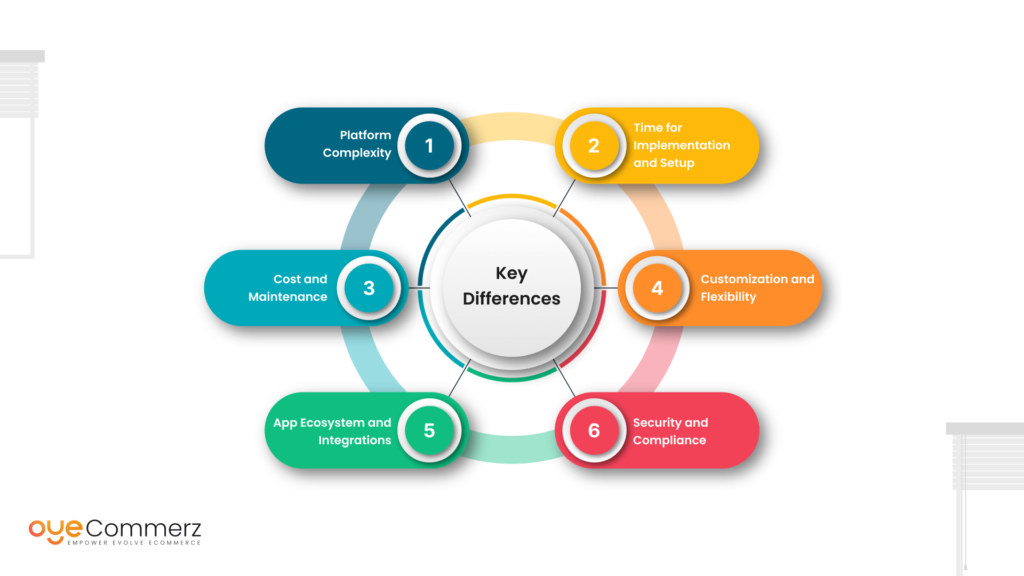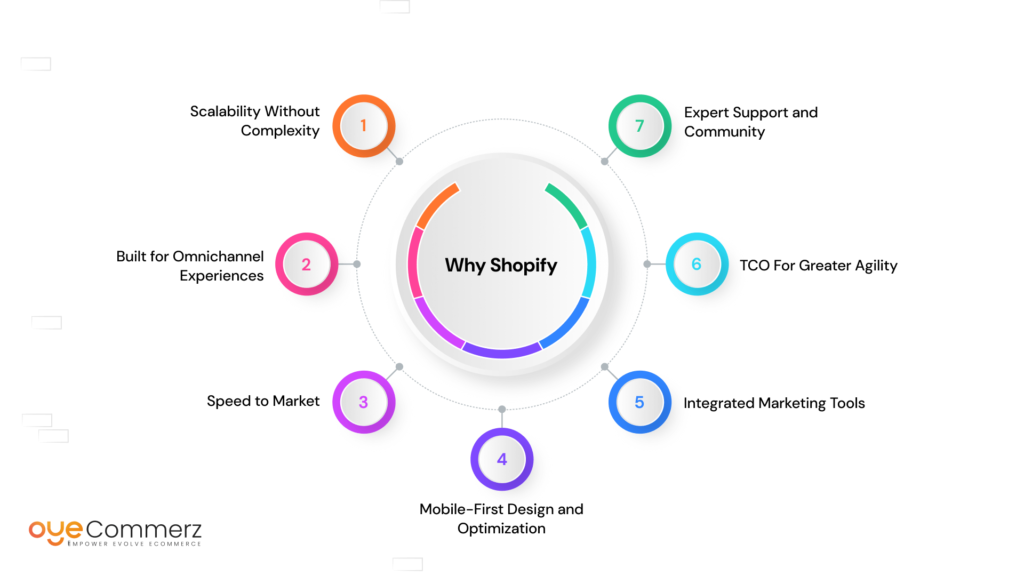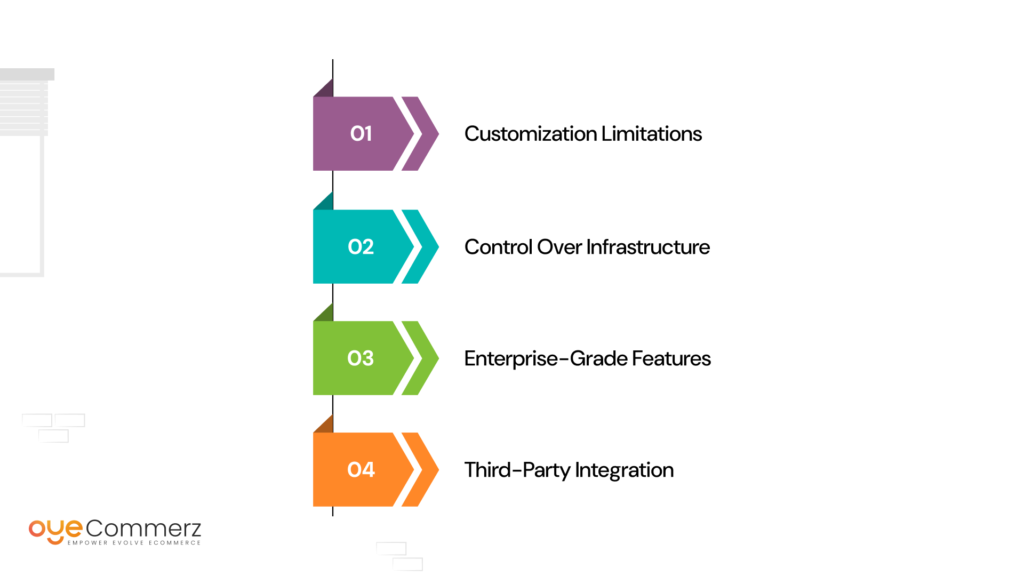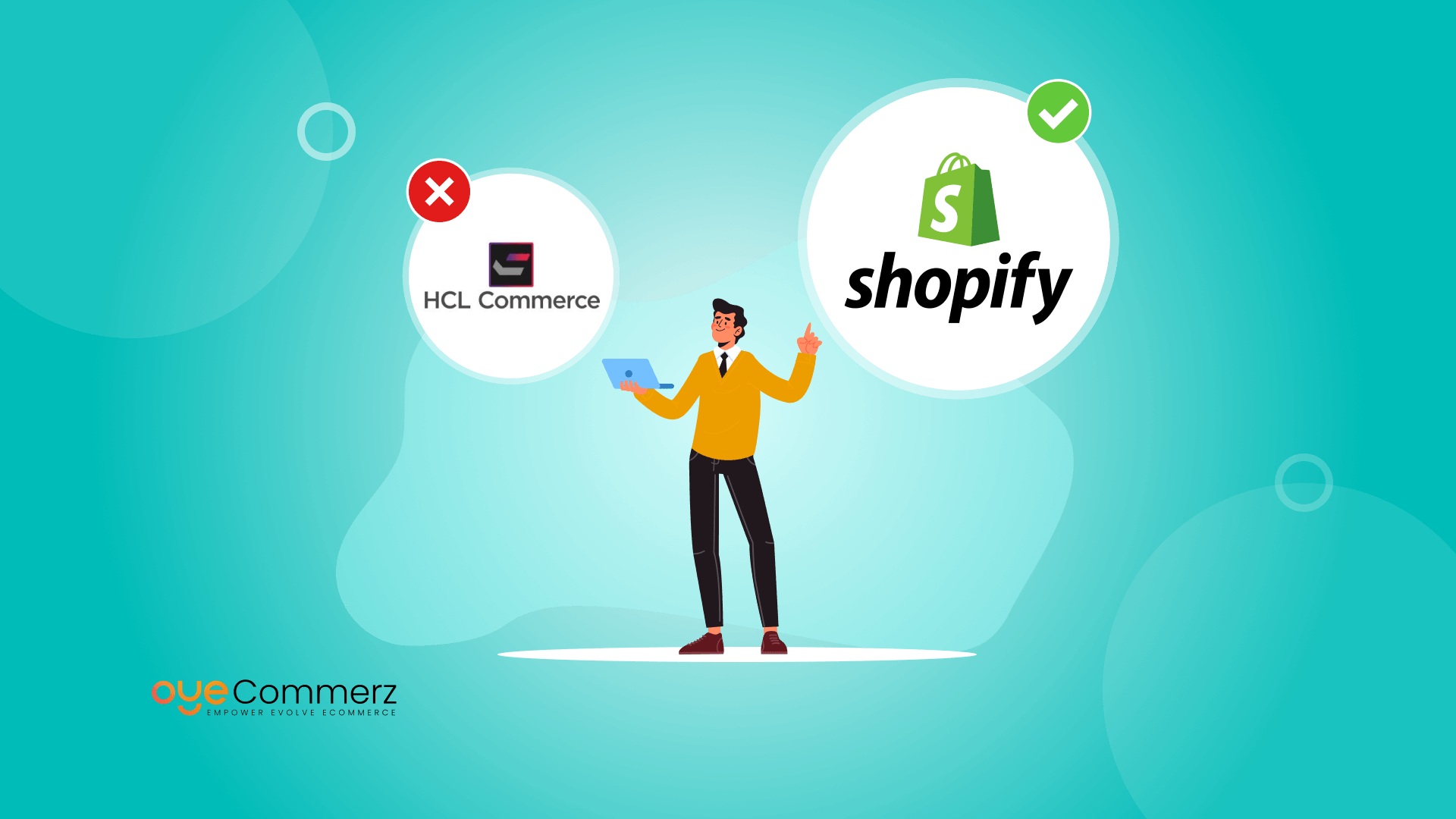Are you an existing OpenCart user wondering if it’s time to switch platforms for better growth and ease of management? Many businesses, like yours, face the challenge of choosing the right platform that can keep up with their growing needs. Shopify has become a top choice for business owners because it’s user-friendly, scalable, and packed with tools designed to help you thrive. In fact, businesses that migrate to Shopify see an average 30% increase in sales within the first year.
In this blog, we’ll explore why Shopify might just be the better option compared to HCL Commerce, and how it could help simplify your eCommerce journey while boosting your bottom line. Let’s dive in!
Table of Contents
ToggleUnderstanding the Key Differences Between Shopify and HCL Commerce

When comparing Shopify and HCL Commerce, it’s essential to recognize the underlying structure and intent of each platform. Shopify was built with simplicity and user-friendliness in mind, making it accessible to businesses of all sizes, from startups to enterprises. In contrast, HCL Commerce is a robust solution tailored primarily for large-scale enterprises with complex requirements. Let’s delve into the core differences.
Platform Complexity
Shopify has an intuitive, very user-friendly interface where one can easily manage their shop. One does not need to know all the technicalities; hence it is accessible to non-developers. HCL Commerce, on the other hand, is infamous for having complex technical know-how in configuring, customizing, and managing. While this may be attractive to a large organization with an in-house IT staff, it is especially daunting for any business seeking a smoother, more straightforward solution.
Time for Implementation and Setup
The cloud-based architecture of Shopify rules out much implementation time. The predefined templates, themes, and apps enable businesses to set up a fully functional eCommerce website in a matter of days or weeks. On the other hand, the time duration for HCL Commerce is more resource-intensive. Businesses have to dedicate months to these project timelines with HCL for more developmental, integration, and testing phases.
Cost and Maintenance
Another major distinction between the two platforms is cost. Shopify has a flat subscription fee model where hosting, updates, and security come at no extra charge. HCL Commerce, more often the more traditional, enterprise-centric solution, will cost both in terms of up-front licensing and internal server infrastructure as well as ongoing support requirements, thereby making Shopify relatively more affordable for businesses with growth limits that would invoke substantial one-time capital expenditures.
Customization and Flexibility
HCL Commerce is really strong in the customization areas because it caters to very niche requirements for large enterprises. The cost of that customization is good, skilled developers, so changes are very time and money-intensive. Shopify is not very customizable on the back end but offers many themes and third-party apps to extend functionality, making it possible for businesses to build a very personalized storefront without heavy development costs.
App Ecosystem and Integrations
A strong app ecosystem is Shopify’s great strength. With thousands of apps and plugins available in the Shopify App Store, businesses can integrate lots of important features, including marketing automation, CRM, inventory management, and much more. For HCL Commerce, integrations are supported; however, the process would be much more complex and would require custom development to connect third-party systems.
Security and Compliance
Once both companies feature secure considerations, Shop has taken all the burden on the part of businesses by fully hosting the platform, where it automatically up-grades, and maintains PCI compliance, and SSL certificates. However, HCL Commerce is self-hosted, and organizations have to handle their security measures, which can be resource-intensive and expensive in the long run.
It is easy to tell why Shopify is placed well in comparison to HCL Commerce, which caters to large-scale enterprises with more rigid legacy systems remaining intact for them, by this point.
Why Shopify is the Ideal Choice for Your Business

In other words, the decision to migrate to a new eCommerce platform is no longer just about functionality’s about future-proofing your business and ensuring you have the tools to remain competitive in a digital-first world. Here’s why Shopify stands out as the better option.
Scalability Without Complexity
As its name goes, Shopify is scalable without the headaches that are related to traditional enterprise platforms. When you grow your business, Shopify’s infrastructure means you’ll easily be able to handle more traffic and more transactions. With scalable solutions, HCL Commerce does not lack; only it requires constant technical management adding layers of complexities. Shopify takes a back seat regarding the infrastructure completely, letting businesses focus on growth rather than IT.
Built for Omnichannel Experiences
Today’s customers expect to have seamless buying experiences across channels—be they online, in-store, on social media, or other. Shopify excels at enabling omnichannel strategies by integrating with POS systems and other marketplaces like Amazon and eBay, and social platforms like Facebook and Instagram. HCL Commerce also supports omnichannel commerce, but the setup and execution are often much more clunky and costly.
Speed to Market
Time is of the essence in eCommerce. Shopify is a cloud-based system that allows the launching of stores by a business in a flash. Combined with its pre-built themes and templates, along with drag-and-drop functionality, businesses can launch new stores, seasonal campaigns, or product lines with minimal effort. HCL Commerce takes a huge investment in time for customization and deployment, henceforth increasing your speed to market.
Mobile-First Design and Optimization
Shopify is natively mobile-first, so your store will work and render well on any device. As mobile-commerce dominance continues to climb, this makes it crucial for gaining and maintaining customers. HCL Commerce is optimized for mobile out of the box as well, but due to the concerted efforts of Shopify’s designers in perfecting design and functionality have made it all that more accessible to businesses without the budget to continue developing.
Integrated Marketing Tools
Shopify has evolved rich marketing capabilities, including built-in SEO features, social media integration, and auto email marketing capabilities through Shopify Email. These enable businesses to attract traffic and make conversions without the use of third-party platforms. Although HCL Commerce has marketing capabilities, they mostly introduce custom integrations and development work that erect unnecessary layers of complexity in marketing efforts.
TCO For Greater Agility
While their subscription-based model and total cost of ownership are much lower than HCL Commerce, with Shopify the business does not have to deal with dedicated servers, IT staff, and regular maintenance fees; instead, all resources can be directed to growth, not upkeep. With HCL Commerce, there is an upfront implementation fee, after which the ongoing management costs are very high and thus significantly more expensive in the long term.
Expert Support and Community
Shopify provides customer support 24/7 so businesses never face downtime. Additionally, Shopify has a huge and powerful online community and network of partners, which gives businesses an incredible amount of knowledge resources, and experts that help streamline and optimize their stores. Since HCL Commerce is a niche platform, the community is small, and often cannot produce answers quickly when dealing with an issue.
Important Points to Remember

While Shopify has much to recommend it to businesses looking for a new and innovative eCommerce solution, there are a few key things to keep in mind:
Customization Limitations
Shopify is highly flexible via its app store, but it does not offer the same level of backend customization as HCL Commerce. Where your business needs much in the way of extensive customization and development, HCL might be a better fit, though at a significantly higher cost.
Control Over Infrastructure
HCL Commerce gives control over the hosting environment to a business, which may be a boon for businesses that require specific requirements. Shopify, being hosted, abstracts that control, which most businesses will not appreciate.
Enterprise-Grade Features
Although Shopify Plus will provide enterprise-grade features with HCL Commerce, there is still a more granular control and deeper functionality available on HCL for large-scale operations. Therefore, the final answer based on the specific needs of a business should be made.
Third-Party Integration
For one thing, both platforms present significant integration opportunities, though those offered through HCL Commerce are more complex and costly. In contrast, Shopify is plug-and-play, particularly for those looking to streamline with light or no heavy IT investment on the horizon.
Understanding these factors will enable you to make a more informed decision between Shopify and HCL Commerce based on which best realizes your business’s long-term goals.
Shift Your Business for Higher Growth with OyeCommerz!
Choosing Shopify over HCL Commerce with OyeCommerz gives your business the edge in scalability, ease of use, and cost-effectiveness. Shopify’s intuitive platform, robust app ecosystem, and cloud-based infrastructure allow you to focus on growth without the technical complexities of traditional enterprise systems. OyeCommerz, with its expert team, ensures a seamless migration process, helping you leverage Shopify’s built-in marketing tools, mobile-first design, and omnichannel capabilities. Say goodbye to high operational costs and slow deployment.
Contact us now for a free consultation and start your migration journey with confidence!
Contact to Migrate your Site to Shopify Now
Conclusion
It’s Shopfights versus HCL Commerce, depending on your business priorities. Shopify is for those who want to have an enterprise platform that balances scalability, ease of use, lower costs, and faster time to market. Its robust app ecosystem, built-in marketing tools, and commitment to mobile-first design make it the ideal choice for businesses looking to stay competitive in today’s omnichannel retail environment.
While HCL Commerce may still be attractive to organizations that need highly complex, enterprise-level solutions, Shopify is a better option for business that wants to simplify their operations and create growth. In Shopify, you are investing in a future-proof platform that will evolve with your business to create long-term success in the rapidly changing eCommerce landscape.




